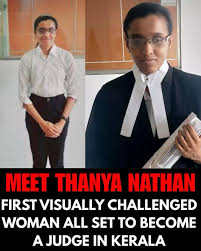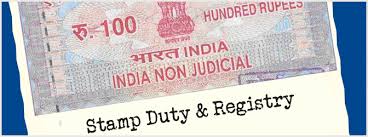S.D. Anand, J.@mdashTime to face facts:-
2. Respondent (discharged) accused was netted by the police on 26.09.1998 when he. while driving scooter bearing registration No. PB-29A-1465 in the area of bypass Sindhwan (Moga), was found carrying contraband. The nature and quantity of the contraband (unlicensed opium weighing I Kg 750 grams) was noticed on the arrival of and in the presence of Jarnail Singh (Superintendent of Police), whose requisition to the spot was obtained in the light of the exercise of an offered option at the hands of the respondent that the search must be conducted in the presence of a Gazetted Officer. On completion of the usual formalities, the police of P.S. City Moga, put up the challan.
3. Respondent cried foul. Crime Branch DSP (Chandigarh) investigated the complaint and found the charge planted. Punjab Human Rights Commission (vide order dated 15.03.2000) upheld that finding independently and recommended the cancellation of the case.
4. As the respondent already stood charged in the meantime, he showcased his grievance by filing a revision petition (No.33338-M of 2000). Disposal (vide order dated 09.10.2002), by this Court, was in the following terms:-
Under these circumstances, I dismiss the present petition as withdrawn with the liberty to the petitioner to file an appropriate application before the trial Judge for dropping the proceedings against him or his discharge in accordance with law. While filing the aforesaid application, the petitioner would be free to take all such pleas as raised in the present petition and other defences which are available to them in accordance with law. If an such application is filed before the Id. Trial Judge by the petitioner, then the same shall be decided by the learned trial Judge after hearing all concerned.
5. Thereafter, the respondent applied to the learned Trial Judge for exoneration from liability in the light of the Crime Branch finding and also the recommendation by the Punjab Human Rights Commission.
6. Purporting to draw jurisdictional sustenance in the context from the provisions of Sections 227 and 245(2) of the Code of Criminal Procedure, the learned Special Judge ordered the discharge of the respondent. Even at the cost of repetition, it may be indicated that the finding drew exclusive sustenance from the relied upon report given by the Crime Branch and the order of the Punjab Human Rights Commission.
7. The State is in revision against the impugned order.
8. As apparent from a perusal of the impugned order and as already noticed in an earlier part of this order, the learned Special Judge recorded a finding of discharge solely on the basis of the Crime Branch finding and the recommendation made by the Punjab Human Rights Commission for the cancellation of the case.
9. The learned State counsel argued that the learned Special Judge had committed a grave error of law in holding that the provisions contained in Sections 227 and 245(2) of the Code of Criminal Procedure authorise the Court from recording a finding of discharge at any stage of the case.
10. The plea was resisted on behalf of the respondent accused by reiterating the correctness of the interpretive line of reasoning adopted by the learned Special Judge.
11. For enabling precise appreciation of the controversy, it would be useful to reproduce hereunder the provisions contained in Sections 227 and 245 of the Code of Criminal Procedure:-
227. Discharge. - If upon consideration of the record of the case and the documents submitted therewith, and after hearing the submissions of the accused and the prosecution in this behalf, the Judge considers that there is not sufficient ground for proceeding against the accused, he shall discharge the accused and record his reasons for so doing.
245. When accused shall be discharged.-(1) If, upon taking all the evidence referred to in section 244 the Magistrate considers, for reasons to be recorded, ''that no case against the accused has been made out which, if un-rebutted, would warrant his conviction, the Magistrate shall discharge him.
(2) Nothing in this section shall be deemed to prevent a Magistrate from discharging the accused at any previous stage of the case if, for reasons to be recorded by such Magistrate, he considers the charge to be groundless.
12. As would be apparent from a perusal of Section 227 of the Code of Criminal Procedure, it authorises the Court to consider a discharge only at the time the matter comes up before the Court for consideration of charge. It is at that point of time that the Court may order discharge "if upon consideration of the record of the case and the documents submitted therewith, and after hearing the submissions of the accused and the prosecution in this behalf, the Judge considers that there is not sufficient ground for proceeding against the accused". The provision does not at all envisage a discharge at any subsequent point of time till the matter comes to be finally adjudicated upon by the Court.
13. Insofar as the provisions of Section 245 of the Code of Criminal Procedure are concerned, there also the Learned Counsel for the respondent - accused is not on a firmer footing. If we peruse the provisions of Section 245(1), we would notice all that the provision provides is that the discharge must be considered by the Magistrate, "If, upon taking all the evidence referred to in section 244 the Magistrate considers, for reasons to be recorded, that no case against the accused has been made out which, if un-rebutted, would warrant his conviction". In the present case, "all the evidence" has not yet been recorded. In fact, the Learned Counsel for the parties conceded before this Court that only a formal witness had come to be recorded in the context of the intactness of the sample, before the impugned order came to be granted by the learned Special Judge. Apart therefrom, it requires particular notice that the provision under discussion pertains to a case instituted otherwise than on a police report.
14. Sub-Section 2 of Section 245 of the Code of Criminal Procedure also does not appear to support respondent''s plea in view of the fact that the sub- section deals with any eventuality in a case instituted otherwise than on a police report; whereas in the case before this Court, the report u/s 173 Cr.P.C. had been filed by the police.
15. Insofar as the ''recommendation'' made by the Punjab Human Rights Commission is concerned, it is recommendatory in character and there is nothing on record to indicate that the prosecution ever applied for ''cancellation'' of the case on the basis thereof. Insofar as the report furnished by the Crime Branch DSP is concerned, it is for the respondent - accused to prove it at the trial in defence evidence or otherwise as permissible under the law and, then, ask for a finding of the Court. The Learned Counsel for the parties were otherwise not in a position to categorically indicate the date on which the Crime Branch had furnished the report. Accordingly, they were also not able to indicate whether this report came to exist by the time the respondent was charge-sheeted by the Court of Special Judge, Moga, or not. If the Crime Branch report came into existence before the charge came to be framed, the respondent - accused ought to have made a presentation in the context before the learned Special Judge. It is then only that the latter could have considered the effect thereof while deliberating the consideration of a charge. Though, the locus standi of the respondent-accused to rely upon the Crime Branch report and also the order passed by the Punjab Human Rights Commission cannot be questioned, it is equally clear that the contents of the report shall have to be noticed and dealt with only at the time of final disposal of the prosecution.
16. I would, accordingly, allow the revision petition, set aside the impugned order and direct the learned Special Judge, Moga, to proceed in the matter in accordance with law. As the impugned order came to be passed in the year 2002 in a prosecution launched by the police of City Moga, in the year 1998, it would be in the fitness of things, if the learned Special Judge, Moga, is directed to conclude the trial within a period of three months from 30.04.2008 i.e. the date on which the matter shall be listed (along with a copy of the order passed by this Court) before that Court and it is so ordered accordingly.

